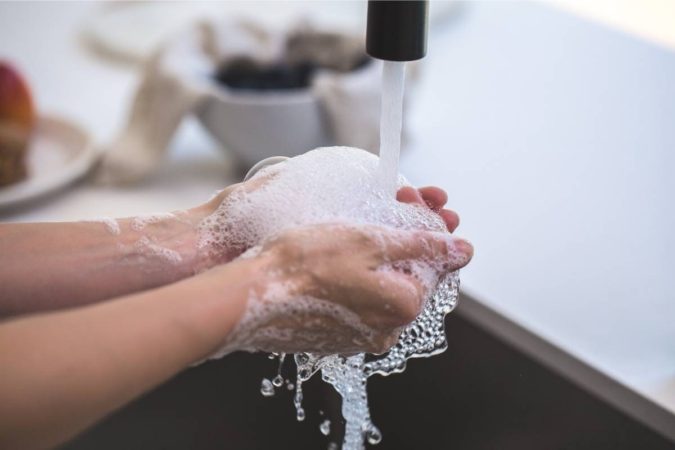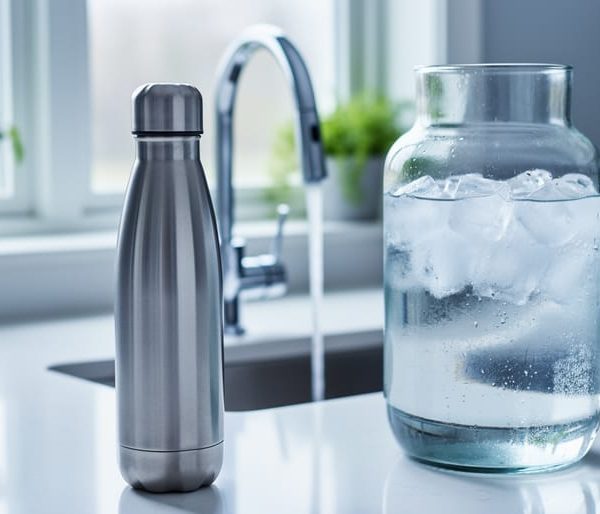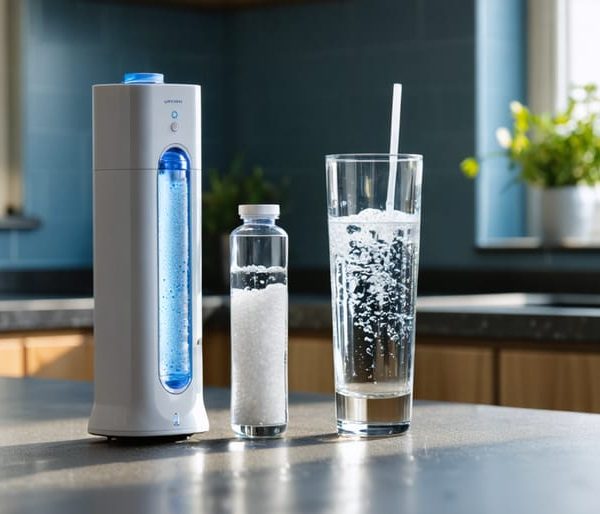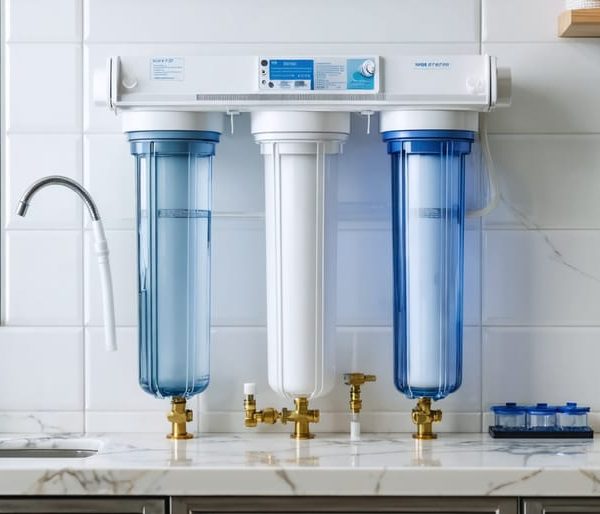The primary difference between hard vs soft water is in the quantity of water hardness minerals (calcium and magnesium ions) they contain. Hard water has a high level of hardness minerals, while soft water has a very low level.
The best way to detect the nature of your water is to conduct a home water test. Water hardness is measured in units of grains per gallon (GPG). Soft water is usually below 1 GPG, while the varying degrees of hard water are above 1 GPG. Very hard water is above 10 GPG.
Hard or soft water both come with their advantages and disadvantages.
The Differences Between Hard and Soft Water
The differences between hard water and soft water cut across their use in the shower, drinking water, the state of pipes in the home, water pressure, and other uses.
Soap Scum
Soap scum is one of the most widely-known effects of using hard water to bathe and wash. So, you’ll likely see it in the shower, on kitchen faucets, in your dishwasher, laundry machine, and around your drains.
Soap scum is formed from the combination of soap and the essential minerals contained in hard water. The texture is hard, and its color is milky or white. It’s insoluble, and after some time, you’ll notice its coating effects. Even your bathtub and bathroom door handles will have such coating.

It poses a problem because it’s hard to clean off or remove from affected surfaces. This is because of its insoluble state. Even worse, the more you use soap with hard water, the more soap scum in certain areas in your home. Also, you even feel film and soap scum on your fingers. If there’s film and soap scum on your hands, you will spend more time rinsing it off than you should.
On the other hand, soft water doesn’t pose such issues when used with soap. Soft water lacks the same quantity of mineral deposits to form soap scum on your hands, appliances, and other areas in your home. Soft water is the solution to the absence of soap scum in your home. These are the benefits of the water softening system.
Scale Deposits in Appliances, Pipes, and Surfaces
Homes using hard water over time will experience the development or buildup of scales inside their pipes. As hard water passes through your pipes for some time, scales will start to show due to the residue from the mineral deposits.
Not just your pipes will be affected, but your appliances such as the water heaters, dishwashers, and washing machines will also be affected. You’ll notice scale buildup in your appliances and even on surfaces that the hard water touches. It’s similar to the soap scum, but it doesn’t require soap to form.
Just like the soap scum, scale removal is also a complex process. Attempts to remove scales on surfaces (such as your shower nozzle or the surrounding areas of your faucets) with an abrasive or coarse pad can result in also removing the finishing of surfaces. It won’t be a pretty sight.
Some homes have resorted to using a temporary fix such as dipping their showerheads in solutions such as lemon juice or vinegar. While this works, it won’t solve your issues head-on because you’re still using hard water.
Using a water softening system to produce soft water can solve the issue of scales in your home. Soft water lacks the mineral deposits to trigger scale buildup in areas it touches or passes through. So when it comes to hard vs soft water in terms of the state of your pipes over time, soft water will make a better choice.
Staining on Surfaces
Hard water stains kitchenware such as your dishes, glasses, and pots. If you regularly use hard water to wash kitchenware, you’ll notice spots on them. The reason is the same – a high volume of dissolved minerals.
The combination of these stains, scum, and scales can make your home an eyesore. Unfortunately, those spots won’t go away as long as you continue using hard water to handle your dishes.
Soft water offers better water quality as it is more friendly to pipes, surfaces, and appliances. It may not be your preferred drinking water, but it’s perfectly suited for other uses such as your laundry, cooking, bathing, and dishwashing.
To solve stains in your home, acquire a salt-based water softener or salt-free water softeners for water softening and the removal of dissolved minerals from your water.
Their Sources
Hard water and soft water are differently sourced. You can easily get hard water from wells since they contain underground water. It’s a source rich with mineral deposits and an infinite source of calcium and magnesium. Seawater is another source of hard water.
Using hard water in your home can be incredibly expensive due to the level of maintenance that will follow. Mineral saturated water costs a lot because of frequent repairs and replacements in your household.
A good source of soft water is rain. Rainwater is naturally soft because rain falls directly from the sky, and it has no contact with the essential minerals in the soil.
Rainwater only becomes temporarily hard when it contacts the ground and picks up the mineral buildup of certain ions such as calcium carbonate. The addition of lime or boiling can remove such hardness.
Mineral Content and Drinking Water Benefits
This is the significant difference between hard water and soft water. Hard water contains hardness minerals, primarily calcium and magnesium, while softened water contains sodium ions mostly.
During a process known as ion exchange used by the water softener, calcium and magnesium are exchanged for sodium to convert hard water into soft water.
Picking your preferred drinking water between hard or soft water hinges on your dietary requirements. If you want a daily intake of sodium, softened water should be your drinking water. If you want a daily intake of calcium and magnesium, hard water should be your drinking water. The water balance is different, but they are both safe to drink.



